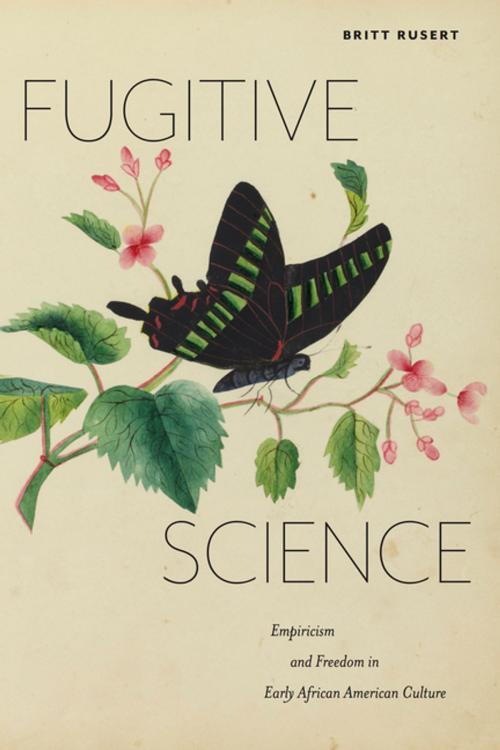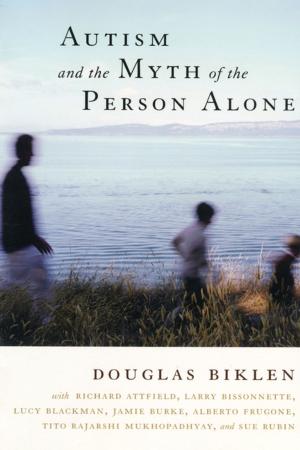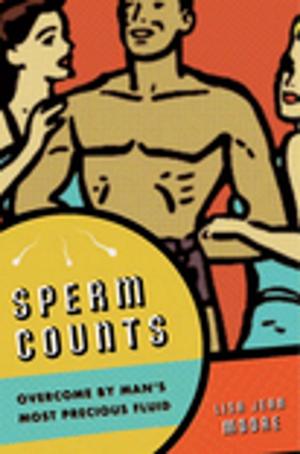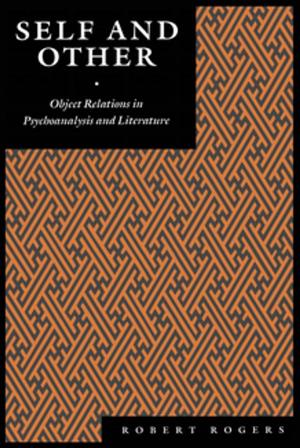Fugitive Science
Empiricism and Freedom in Early African American Culture
Fiction & Literature, Literary Theory & Criticism, Black, American, Nonfiction, History, Modern, 19th Century| Author: | Britt Rusert | ISBN: | 9781479805723 |
| Publisher: | NYU Press | Publication: | April 18, 2017 |
| Imprint: | NYU Press | Language: | English |
| Author: | Britt Rusert |
| ISBN: | 9781479805723 |
| Publisher: | NYU Press |
| Publication: | April 18, 2017 |
| Imprint: | NYU Press |
| Language: | English |
Honorable Mention, 2019 MLA Prize for a First Book
Sole Finalist Mention for the 2018 Lora Romero First Book Prize, presented by the American Studies Association
Exposes the influential work of a group of black artists to confront and refute scientific racism.
Traversing the archives of early African American literature, performance, and visual culture, Britt Rusert uncovers the dynamic experiments of a group of black writers, artists, and performers. Fugitive Science chronicles a little-known story about race and science in America. While the history of scientific racism in the nineteenth century has been well-documented, there was also a counter-movement of African Americans who worked to refute its claims.
Far from rejecting science, these figures were careful readers of antebellum science who linked diverse fields—from astronomy to physiology—to both on-the-ground activism and more speculative forms of knowledge creation. Routinely excluded from institutions of scientific learning and training, they transformed cultural spaces like the page, the stage, the parlor, and even the pulpit into laboratories of knowledge and experimentation. From the recovery of neglected figures like Robert Benjamin Lewis, Hosea Easton, and Sarah Mapps Douglass, to new accounts of Martin Delany, Henry Box Brown, and Frederick Douglass, Fugitive Science makes natural science central to how we understand the origins and development of African American literature and culture.
This distinct and pioneering book will spark interest from anyone wishing to learn more on race and society.
Honorable Mention, 2019 MLA Prize for a First Book
Sole Finalist Mention for the 2018 Lora Romero First Book Prize, presented by the American Studies Association
Exposes the influential work of a group of black artists to confront and refute scientific racism.
Traversing the archives of early African American literature, performance, and visual culture, Britt Rusert uncovers the dynamic experiments of a group of black writers, artists, and performers. Fugitive Science chronicles a little-known story about race and science in America. While the history of scientific racism in the nineteenth century has been well-documented, there was also a counter-movement of African Americans who worked to refute its claims.
Far from rejecting science, these figures were careful readers of antebellum science who linked diverse fields—from astronomy to physiology—to both on-the-ground activism and more speculative forms of knowledge creation. Routinely excluded from institutions of scientific learning and training, they transformed cultural spaces like the page, the stage, the parlor, and even the pulpit into laboratories of knowledge and experimentation. From the recovery of neglected figures like Robert Benjamin Lewis, Hosea Easton, and Sarah Mapps Douglass, to new accounts of Martin Delany, Henry Box Brown, and Frederick Douglass, Fugitive Science makes natural science central to how we understand the origins and development of African American literature and culture.
This distinct and pioneering book will spark interest from anyone wishing to learn more on race and society.
Honorable Mention, 2019 MLA Prize for a First Book
Sole Finalist Mention for the 2018 Lora Romero First Book Prize, presented by the American Studies Association
Exposes the influential work of a group of black artists to confront and refute scientific racism.
Traversing the archives of early African American literature, performance, and visual culture, Britt Rusert uncovers the dynamic experiments of a group of black writers, artists, and performers. Fugitive Science chronicles a little-known story about race and science in America. While the history of scientific racism in the nineteenth century has been well-documented, there was also a counter-movement of African Americans who worked to refute its claims.
Far from rejecting science, these figures were careful readers of antebellum science who linked diverse fields—from astronomy to physiology—to both on-the-ground activism and more speculative forms of knowledge creation. Routinely excluded from institutions of scientific learning and training, they transformed cultural spaces like the page, the stage, the parlor, and even the pulpit into laboratories of knowledge and experimentation. From the recovery of neglected figures like Robert Benjamin Lewis, Hosea Easton, and Sarah Mapps Douglass, to new accounts of Martin Delany, Henry Box Brown, and Frederick Douglass, Fugitive Science makes natural science central to how we understand the origins and development of African American literature and culture.
This distinct and pioneering book will spark interest from anyone wishing to learn more on race and society.
Honorable Mention, 2019 MLA Prize for a First Book
Sole Finalist Mention for the 2018 Lora Romero First Book Prize, presented by the American Studies Association
Exposes the influential work of a group of black artists to confront and refute scientific racism.
Traversing the archives of early African American literature, performance, and visual culture, Britt Rusert uncovers the dynamic experiments of a group of black writers, artists, and performers. Fugitive Science chronicles a little-known story about race and science in America. While the history of scientific racism in the nineteenth century has been well-documented, there was also a counter-movement of African Americans who worked to refute its claims.
Far from rejecting science, these figures were careful readers of antebellum science who linked diverse fields—from astronomy to physiology—to both on-the-ground activism and more speculative forms of knowledge creation. Routinely excluded from institutions of scientific learning and training, they transformed cultural spaces like the page, the stage, the parlor, and even the pulpit into laboratories of knowledge and experimentation. From the recovery of neglected figures like Robert Benjamin Lewis, Hosea Easton, and Sarah Mapps Douglass, to new accounts of Martin Delany, Henry Box Brown, and Frederick Douglass, Fugitive Science makes natural science central to how we understand the origins and development of African American literature and culture.
This distinct and pioneering book will spark interest from anyone wishing to learn more on race and society.















